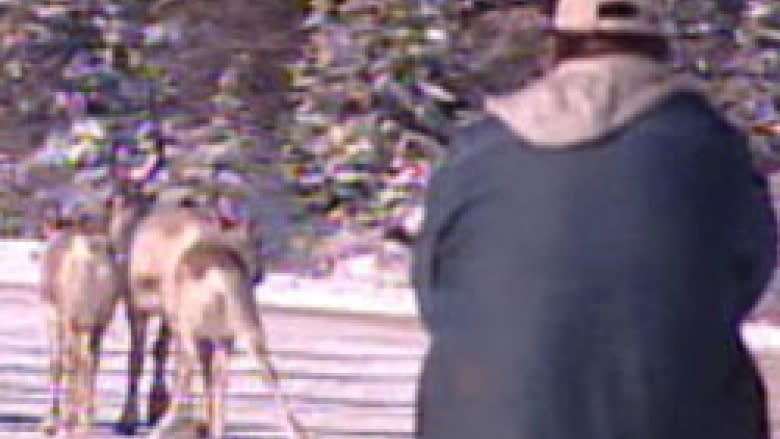Hunting 'primary factor' in decline of Red Wine caribou, says Dan Crummell
Environment and Conservation Minister Dan Crummell says illegal hunting is a "primary factor" why the Red Wine Mountain caribou herd has been reduced to critical numbers in recent years.
The herd, located in central Labrador, is now estimated to number just 20 animals to the north of the Churchill River, which is the area traditionally referred to as the Red Wine subpopulation.
That's down sharply from the 97 animals identified in a 2001 survey of an area north and south of the river.
Hunting by Innu from Quebec and Labrador five and six years ago drew harsh criticism because it took place in closed areas known to be occupied by caribou from the Red Wine herd.
The hunt targeted the larger George River herd, but officials expressed fears at the time that Red Wine caribou may have been killed as well.
This was never proven, and there were never any convictions.
When asked if those hunts were a factor in the herd's dangerously low numbers, Crummell said it didn't help.
"We believe that hunting is one of the primary factors in the last few years ... in terms of population decline," Crummell told CBC Here and Now Monday.
There is a strict hunting ban in place, and Crummell said it will be enforced.
He said research and monitoring will continue in an effort to save the herd from extinction.
"We're hopeful ... the herd comes back to a sustainable level where we can harvest it again at some point in the future," Crummell said.
The latest step includes an amendment to the permit that allows Nalcor Energy to conduct a transmission line as part of the Muskrat Falls hydroelectric project on the Churchill River.
The amendment stipulates that all work must be halted if caribou are observed within a four-kilometre radius of the work area until the animals have left the area.
Activities are also prohibited in areas known to be calving and post-calving areas.
"We have notified Nalcor Energy to revise their activities in this area to minimize all disturbances to the remaining animals, including avoiding and limiting project activities during sensitive time periods and more monitoring will be conducted.”
Caribou in decline worldwide
The Red Wine herd is one of 57 in Canada designated as threatened, said Crummell, noting that caribou numbers around the world are in decline.
The George River herd has also experienced a dramatic population decline, with the province implementing a five-year hunting ban in January 2013 after studies showed the herd's population dropped by 70 per cent since 2010 to less than 20,000 animals.
Crummell said there's a complex combination of reasons why caribou are in decline, including illegal hunting, predation, range deterioration and low survival rates.
Some experts have also noted that some Red Wine caribou have joined the George River herd over the years.
Crummell said there are genetic and behavioural differences between animals in the two herds, which makes them worth protecting.
Red Wine is comprised of "sedentary" woodland caribou, unlike the George River herd.
“The status of this herd is of great concern," Crummell said.




